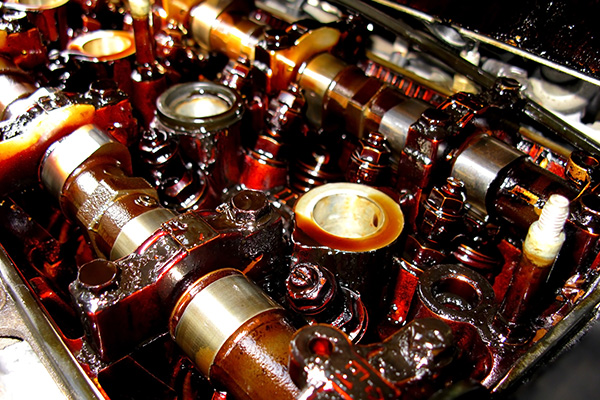
It’s easy to put off an oil change when life gets busy. Maybe you meant to go last weekend but didn’t get the chance. Maybe you’ve gone a few hundred or a few thousand miles over the recommended interval and haven’t noticed any problems. The truth is, the effects of skipping oil changes aren’t always immediate, but the damage builds over time, and once it sets in, it can shorten the life of your engine.
Let’s take a closer look at what happens when oil changes are delayed and why regular service is one of the simplest and most effective ways to protect your vehicle.
Why Oil Is So Important
Motor oil does more than just keep your engine parts slick. It also:
- Reduces friction between fast-moving metal parts
- Helps dissipate heat generated by the engine
- Traps dirt, debris, and metal particles
- Prevents corrosion inside the engine
Fresh oil does all of these things well, but as it ages, it breaks down and becomes less effective. Over time, the additives wear out, the oil gets thicker, and it turns into a dark sludge that can clog passages and damage parts.
The First Warning Signs
When you go too long without changing the oil, you might start to notice small issues. The engine may run hotter than usual. Acceleration might feel sluggish. Your oil light might flicker on occasionally or stay illuminated.
You might even hear new sounds like ticking or knocking, especially when the engine is cold. These are early signs that lubrication is breaking down and the engine is working harder to keep itself running.
Increased Engine Wear
Without clean oil, your engine parts begin to wear faster. Pistons, camshafts, bearings, and valves all rely on a thin layer of oil to operate smoothly. When oil becomes dirty or runs low, that layer disappears, leading to increased metal-on-metal contact.
This friction causes the parts to degrade more quickly, creating more heat and wear. The damage may not be obvious right away, but over time, it reduces your engine’s efficiency and longevity.
Sludge Buildup
Old, dirty oil thickens and forms deposits. This sludge sticks to engine parts and clogs oil passages, starving vital components of lubrication. You may not notice a problem until one of those parts fails.
Engines with heavy sludge buildup often require expensive internal cleaning or even major repairs. In severe cases, the only solution is a complete engine replacement.
Overheating Risk
Oil not only lubricates but also carries heat away from the engine’s hottest areas. When it can’t do its job, those parts run hotter than they should. Combine that with poor circulation from thickened oil or clogged filters, and the risk of overheating increases dramatically.
Even a single overheating incident can lead to warped components, blown head gaskets, or cracked engine blocks, which are all expensive and time-consuming to repair.
Loss of Fuel Efficiency
When your engine struggles against internal friction or heat, it requires more effort to produce the same power. That effort translates into increased fuel consumption. You may notice your gas mileage slowly decreasing, even if you’re driving the same routes.
Replacing old oil with fresh, clean oil can restore some of that lost efficiency. It’s one of the easiest ways to keep your vehicle running economically.
Voiding Your Warranty
For newer cars still under manufacturer warranty, skipping oil changes may void coverage. Automakers require proof of regular maintenance to honor warranty claims, especially when it comes to engine repairs. Skipping services can leave you on the hook for costly repairs that otherwise would’ve been covered.
How Often Should You Change Your Oil
Most vehicles today can go between 5,000 and 7,500 miles between oil changes, depending on the type of oil and the manufacturer’s guidelines. Some newer models using synthetic oil can even stretch closer to 10,000 miles under ideal conditions.
But factors like stop-and-go traffic, short trips, towing, or extreme temperatures can shorten those intervals. When in doubt, check your owner’s manual or ask our technicians. And remember, oil should be changed at least once per year, even if you haven’t reached the mileage interval.
Regular Oil Changes Are Engine Insurance
An oil change is one of the most affordable and essential services you can schedule for your vehicle. It keeps your engine healthy, prevents avoidable repairs, and helps your car last longer. Neglecting oil changes may save time today, but the long-term cost far outweighs the temporary convenience.
Stay Ahead of Engine Trouble in Acworth, GA
At KAMS Auto Service Center in Acworth, GA, we make oil changes quick, affordable, and thorough. Our team checks oil condition, fluid levels, filters, and more to keep your engine protected mile after mile.
Don’t wait until problems show up—schedule your oil change with us today and keep your engine running like it should.